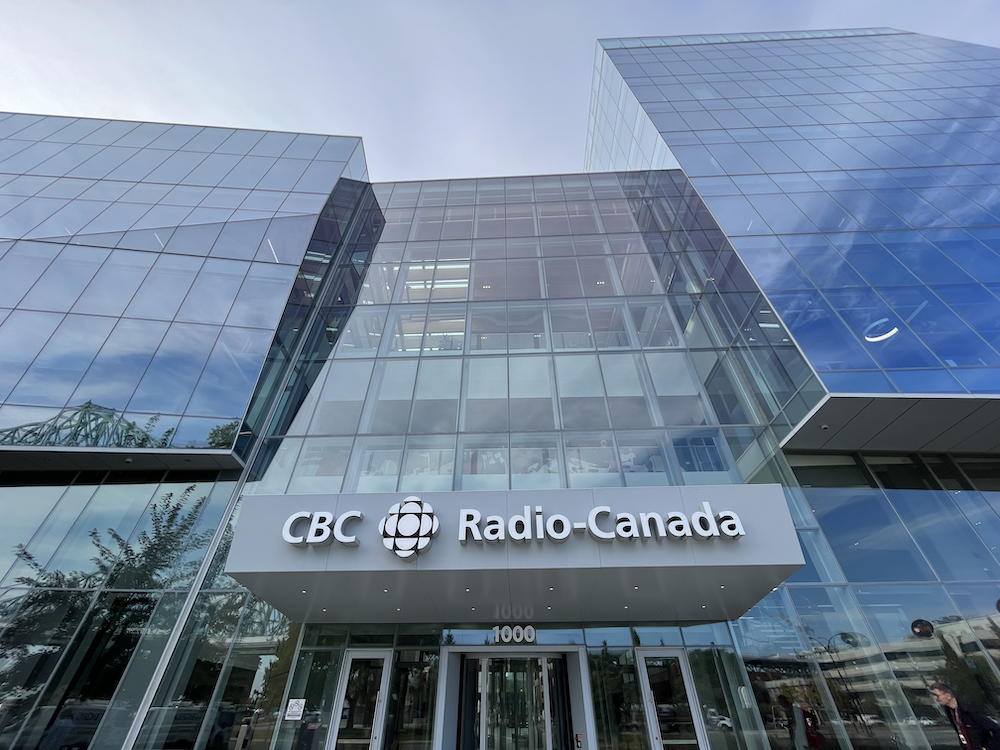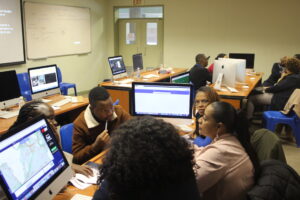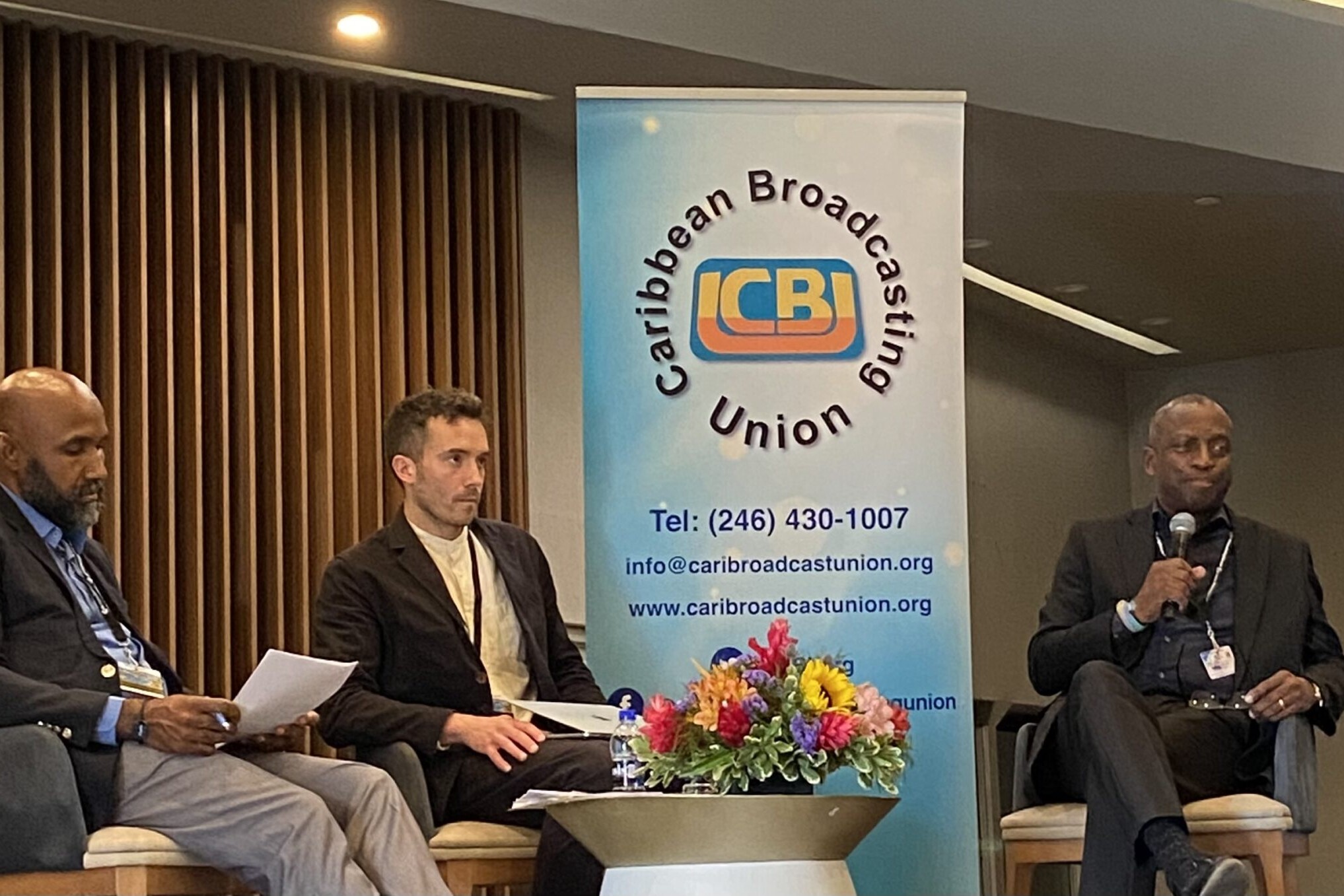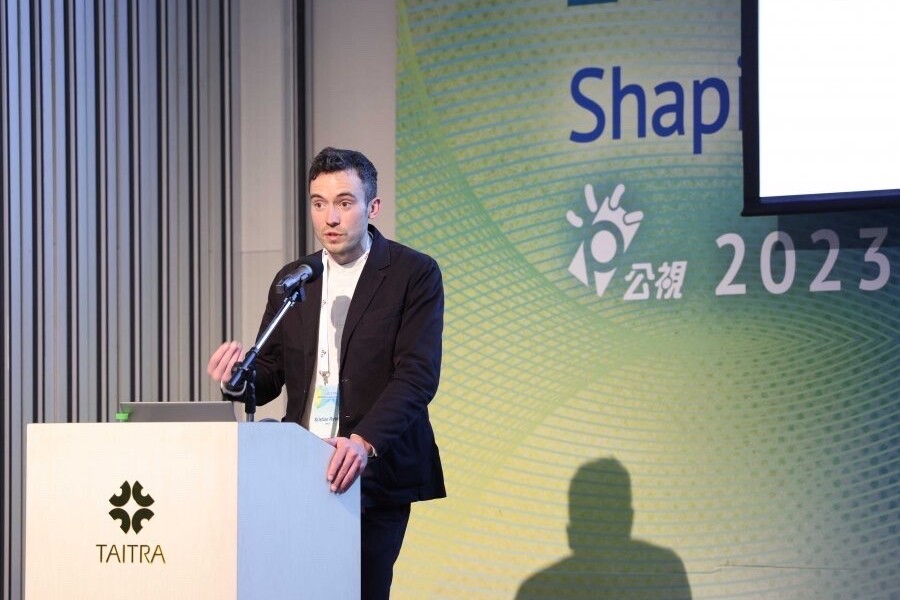INSIGHT
PMA in 2023: A year in review
22nd December 2023
Ahead of the new year, our CEO reflects on a busy year for the Public Media Alliance and for public service media around the world.

By Kristian Porter, CEO of the Public Media Alliance
“There has never been more need for trusted public service media, yet nor has it been more under threat”.
I have repeated this sentence a lot this year in meetings with our members, other media stakeholders, at conferences, and during our projects around the world – from Canada and Antigua to Taiwan and South Korea.
While for many this time of year is a time of celebration and coming together, it is also a time for reflection. And sadly, despite the crucial role in underpinning informed society and democracy, the challenges facing independent public service media have grown apace.
Read more: Explore PMA staff’s top stories and work from 2023
Although 2023 started with some positive news that privatisation plans for Brazil’s EBC and the UK’s Channel 4 were being dropped, it culminates with Argentina’s new president threatening to privatise the country’s public broadcasting and news agency network.
Meanwhile, I would be surprised if there was ever a period when public broadcasting has faced such an existential challenge to its funding situation as it does today. Ireland’s RTÉ and South Africa’s SABC have warned of insolvency. Germany’s public media sector faces a freeze to its household levy, something the UK’s BBC has had to contend with over the past two years. Switzerland’s SRG SSR is contending with a possible drop in its licence fee.
Commercial revenue for news media is drying up, with much of it being absorbed by the big tech platforms. The resulting competition for a shrinking pot is certainly taking its toll, with private media in some countries rallying to apply pressure on what is seen as the unfair advantage of public media receiving advertising income. Where steps have been taken to readdress imbalances, there has been significant pushback by companies such as Meta. In Canada, the owner of Facebook and Instagram has blocked the availability of news content on its services in response to the Online News Act, which compels digital platforms like Meta and Google to strike up content agreements with news providers.

This imbalance and lack of accountability for social media giants – also highlighted in Twitter/X’s mislabelling of public media – paints a grim picture, especially for PSM in smaller media markets. Not only does the block by Meta severely curtail the availability of news, especially at times of crisis, it also demonstrates the imbalances in bargaining power between these platforms and the providers of trusted sources of information.
Challenges like this, as well as rising inflation and the cost-of-living crisis, pose serious consequences for the viability of public service media. Cuts to programming and jobs have recently been announced at CBC/Radio-Canada, something Sweden’s public media are also facing. New Zealand’s RNZ and Australia’s ABC are two of very few broadcasters who have seen increased investment this year.
All this, while the environment for journalists and news media becomes more precarious. Globally, media freedom has experienced a significant backslide while journalists are being killed in devastating numbers, predominantly due to two conflicts in Gaza and in Ukraine. A series of coups in West Africa have seen serious clampdowns on independent journalism.
As of the 20 December, at least 68 journalists and media workers have been killed in the Israel-Gaza war since 7 October – more in 10 weeks “than have been killed in a single country over an entire year” according to the Committee to Protect Journalists (CPJ). The killing of journalists must end, and we call for all parties to ensure that journalists are protected and able to fulfil their work to inform, reveal truth, and hold power to account.
Listen toour podcast
Uncovering and exploring the biggest
issues facing public media
In search of positive news
There have been encouraging stories, not least changes at Fiji’s FBC or Slovenia’s RTV SLO, which will hopefully see these broadcasters – after years of backsliding – set on a more positive course. And significant changes could soon be seen in Poland after years of state interference into the national broadcaster TVP.
And then there’s Generative AI. As stories of AI being used inappropriately by publishers surfaced throughout the year, public media was able to demonstrate their exceptionality. Organisations quickly published strategies on how they will adopt and deploy such technology. These publications re-emphasise the commitments public broadcasters make to their public in their work, with accountability, transparency, and value.
For the Public Media Alliance, the year has been one of progress, maintaining our position as an outspoken and leading voice for independent public service media, whether that is through our advocacy reports, our position as the Secretariat for the Global Task Force, or showing support for stronger laws and regulation to better protect independent PSM, such as the European Media Freedom Act.
Media Uncovered, PMA’s podcast, has continued to build and is now a catalogue of topical issues confronting public service media, from the value of language services to how radio promotes peace. There has been an unintentional thread to many episodes relating to the impact of the digital age and social media on public media. The podcast explores cybersecurity, streaming services, and social media platforms over several unique episodes.
We continue to bring our members together and provide opportunities for exclusive and much-valued international cooperation, whether that is through PSM Unpacked – our series of digital roundtables – or our Global Grants, which fund international travel. Such opportunities for knowledge exchange will be vital if public media is to maintain its position in providing value to audiences.

Our project work continues to demonstrate PMA’s commitment to media development and advancement, from a workshop in Namibia on digital investigative journalism, attended by journalists from six countries, to a workshop in Thailand on gender-sensitive reporting funded by UNESCO IPDC. Toolkits, action plans, and situation reports developed during these projects provide legacy and equip those involved with ways to progress. Our research for CBC/Radio-Canada and the DG8 looking to the future of international public media was another example of our impact.
The Public Media Alliance has also continued to be an active player in the latest academic research into public broadcasting. PMA hosts an important and unique home for the latest research and studies into public media via our Knowledge Hub. Our Sustainability Symposium, held in June alongside the International Association of Public Media Reseachers (IAPMR) and the University of Westminster, was a vital opportunity to connect academics with media practitioners on an urgent issue: public media and sustainability. Our relationship with IAPMR will continue and develop with an exciting new project announced in the new year!
It is difficult to visit all PMA members every year, yet this year – the first full year of international travel since the Covid-19 pandemic – it has been a pleasure to meet so many of our friends and colleagues in-person. This year, we’ve travelled to Kuala Lumpur, Bangkok, Windhoek, Geneva, Prague, Antigua, Seoul and many more places, and the new year will bring more of the same.
2024 will undoubtedly continue to provide public media with threats to their viability and sustainability. Organisations face significant pressures to remain relevant, valued, and used in a contested and congested digital space. Yet truth and trust remain imperative, especially in a year where so many countries will hold elections. During these times, public broadcasters provide a unique and vital role in disseminating the accurate and balanced coverage audiences desire and need at that time.

About the author
Kristian Porter is the CEO of the Public Media Alliance.



